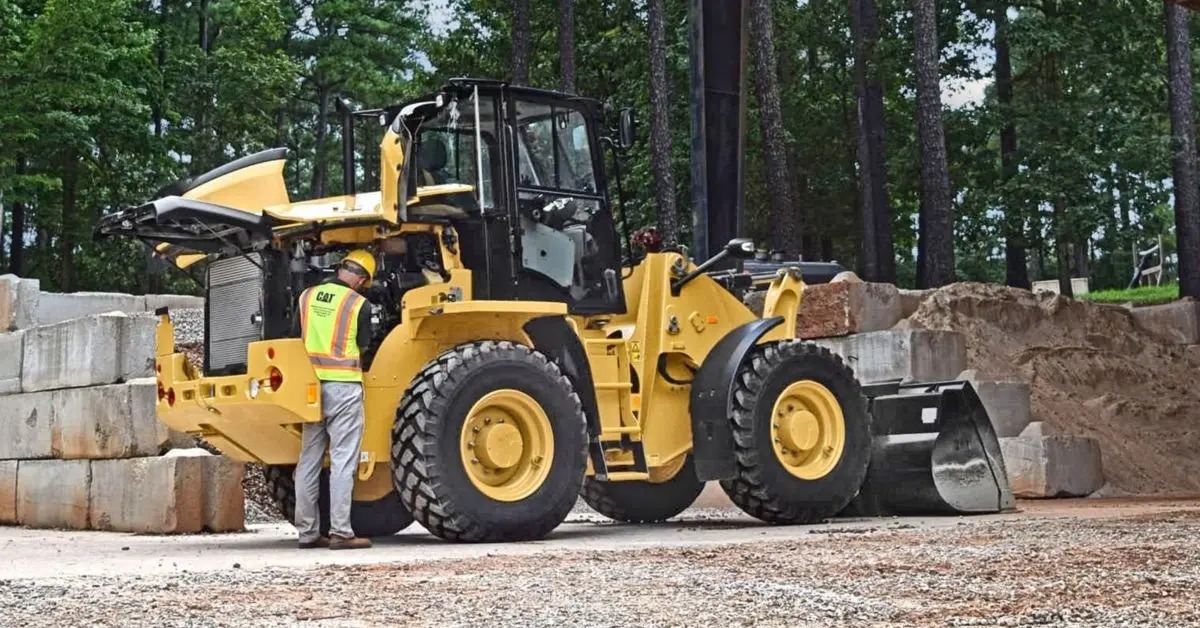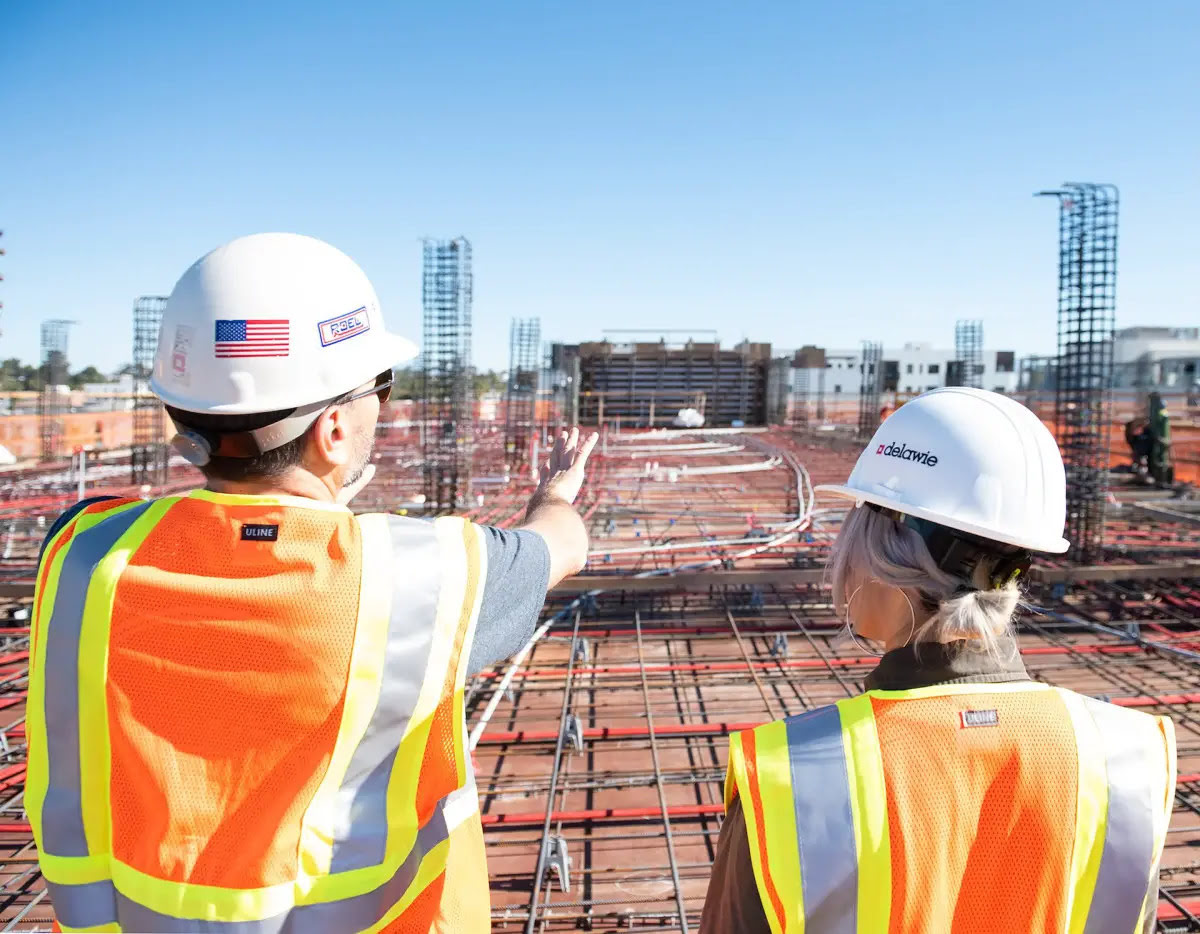Home>diy>Building & Construction>Which Construction Trade Makes The Most Money


Building & Construction
Which Construction Trade Makes The Most Money
Modified: January 20, 2024
Discover which construction trade makes the most money in the industry. Explore the earning potential in building construction and find out how you can maximize your income.
(Many of the links in this article redirect to a specific reviewed product. Your purchase of these products through affiliate links helps to generate commission for Storables.com, at no extra cost. Learn more)
Introduction
The construction industry is a vital component of our global infrastructure, responsible for the creation of buildings, bridges, roads, and other structures that shape our cities. Within this industry, there are various trades and professions that play a crucial role in the construction process. From electricians to plumbers, carpenters to masons, each trade contributes unique skills and expertise to the completion of a project.
One common question that arises when considering a career in the construction industry is, “Which construction trade makes the most money?” While it’s important to note that earnings can vary based on factors such as experience, location, and industry demand, there are certain trades that generally offer higher earning potential.
In this article, we will explore the different construction trades and discuss those that tend to have the highest earning potential. We’ll also delve into the factors that can influence earnings in the construction industry, as well as provide an overview of trades with varying earning potential.
Whether you’re considering a career change or exploring educational opportunities in the construction field, understanding the earning potential of different trades can help you make an informed decision about your future prospects. So, let’s dive in and explore the construction trades that often offer the most lucrative financial rewards.
Key Takeaways:
- Specialized construction trades like electricians, plumbers, and HVAC technicians often offer high earning potential due to their technical expertise, demand, and the critical nature of their work in the construction industry.
- While some construction trades may have lower earning potential, they still provide valuable career opportunities and room for growth, making the construction industry diverse and dynamic for individuals with varying skill sets and aspirations.
Read more: How To Make Money In Construction
Overview of the construction industry
The construction industry plays a crucial role in the development and growth of societies around the world. It is responsible for the creation of important infrastructure and structures that facilitate economic activities, improve living standards, and enhance the overall quality of life. From residential buildings to commercial complexes, highways to airports, the construction industry is a pillar of progress.
Importance of the construction industry
The construction industry is not only vital for the creation of physical structures but also for the generation of employment opportunities and economic growth. It provides job opportunities for skilled and unskilled workers alike, spanning a wide range of professions and trades. Moreover, the construction industry has a multiplier effect on the economy, stimulating other sectors such as manufacturing, transportation, and finance.
Types of construction trades
Within the construction industry, there are numerous trades and professions that specialize in different aspects of the building process. These trades encompass a wide range of skills and expertise, allowing for the seamless construction and maintenance of structures. Some of the most common construction trades include:
- 1. Electricians: Electricians are responsible for the installation, maintenance, and repair of electrical systems in buildings. They ensure that the electrical wiring, outlets, and fixtures are installed correctly and comply with safety regulations.
- 2. Plumbers: Plumbers play a vital role in the construction industry by installing and repairing plumbing systems. They are responsible for connecting pipes, fixtures, and appliances to ensure the proper flow of water and drainage in buildings.
- 3. HVAC technicians: HVAC (Heating, Ventilation, and Air Conditioning) technicians focus on the installation and maintenance of heating, cooling, and ventilation systems in buildings. They ensure that the indoor environment is comfortable and energy-efficient.
- 4. Carpenters: Carpenters specialize in constructing and repairing structures made of wood. They work with a variety of tools to build frameworks, install doors and windows, and create custom woodwork.
- 5. Masons: Masons are skilled in working with bricks, stones, and concrete to build structures such as walls, foundations, and chimneys. They use specialized techniques to ensure durability and aesthetics.
These are just a few examples of the many construction trades that exist within the industry. Each trade requires specific skills and training to perform the tasks required.
Now that we have a basic understanding of the construction industry and the various trades, let’s explore the factors that can affect earnings in these trades.
Factors affecting earnings in construction trades
While there are construction trades that generally offer higher earning potential, it’s important to note that earnings can vary based on several factors. These factors can significantly impact an individual’s earning potential within a particular trade. Let’s take a closer look at some of the key factors that influence earnings in construction trades:
Skill level and experience:
One crucial factor that affects earnings in construction trades is the level of skill and experience that a worker possesses. Skilled tradespeople who have specialized knowledge and expertise in their field tend to command higher salaries. As they gain more experience and refine their skills, their value to employers increases, resulting in higher earning potential. Additionally, certifications and advanced training can also contribute to higher earnings, as they demonstrate an individual’s commitment to professional development and mastery of their trade.
Geographic location:
The geographic location in which a construction worker is employed can have a significant impact on their earning potential. Wages can vary depending on local economic factors, cost of living, and demand for construction services in a particular area. Metropolitan areas or regions with high demand for construction projects often offer higher wages due to increased competition for skilled workers. On the other hand, rural or less developed areas may have lower wages due to fewer construction projects and limited demand.
Union membership:
Union membership can also affect earnings in construction trades. Labor unions negotiate collective bargaining agreements on behalf of their members, which often include higher wages, benefits, and improved working conditions. Unionized construction workers typically enjoy better compensation packages and job security compared to their non-union counterparts. However, it’s important to note that union membership may not be available or mandatory in all areas or trades, and choices in joining a union can vary from person to person.
These are just a few of the many factors that can influence earnings in construction trades. It’s essential for individuals considering a career in the construction industry to take these factors into account when evaluating the earning potential of a specific trade or profession. Now, let’s explore some of the construction trades that often offer the highest earning potential.
Construction trades with high earning potential
While earnings can vary based on factors such as experience and location, certain construction trades tend to offer higher earning potential compared to others. These trades often require specialized skills, expertise, and in some cases, additional certifications or licenses. Here are some construction trades that typically have high earning potential:
1. Electricians:
Electricians play a crucial role in the construction industry. They are responsible for installing, maintaining, and repairing electrical systems in buildings. Due to the critical and technical nature of their work, electricians often command high wages. Their earning potential increases with experience, specialized skills in areas such as industrial or commercial electrical work, and the ability to work with complex electrical systems.
2. Plumbers:
Plumbers are essential for the proper functioning of a building’s plumbing system. They install and repair pipes, fixtures, and other plumbing components to ensure the efficient flow of water and proper drainage. Plumbers often enjoy high earning potential, especially those with specialized skills in areas such as commercial or industrial plumbing, where complex systems may be involved.
3. HVAC technicians:
Heating, Ventilation, and Air Conditioning (HVAC) technicians are responsible for installing and maintaining HVAC systems in buildings. These systems are vital for providing comfortable indoor climates. HVAC technicians who are skilled in working with advanced and energy-efficient systems, such as geothermal or solar-powered systems, often earn higher wages. In addition, HVAC technicians can also benefit from working in regions with extreme climates where the demand for their services is high.
4. Elevator installers and repairers:
Elevator installers and repairers are specialized professionals who install, maintain, and repair elevators, escalators, and other vertical transportation systems. Due to the complexity and safety considerations involved in their work, these professionals often earn high incomes. Additional certifications and extensive experience can further boost earning potential in this trade.
5. Construction managers:
Construction managers are responsible for overseeing and coordinating construction projects from start to finish. They play a crucial role in ensuring projects are completed on time, within budget, and to the client’s satisfaction. Construction managers often have a strong background in construction and possess excellent leadership and organizational skills. Their earning potential can be substantial, especially for those managing large-scale projects or working for prestigious construction firms.
These are just a few examples of construction trades that tend to have high earning potential. It’s important to note that while these trades generally offer lucrative financial rewards, individual earnings can vary based on factors such as experience, location, and industry demand. Now, let’s explore construction trades with moderate earning potential.
Electricians tend to make the most money among construction trades. They often have higher earning potential due to the specialized skills and knowledge required for electrical work.
Construction trades with moderate earning potential
While some construction trades offer high earning potential, there are others that fall into the category of moderate earning potential. These trades still offer competitive wages and can provide a stable income for individuals in the construction industry. Let’s take a closer look at some construction trades with moderate earning potential:
1. Carpenters:
Carpenters are skilled craftsmen who work with wood to construct, install, and repair various structures and fixtures. They may work on projects such as building frameworks, installing doors and windows, and creating custom woodwork. Carpenters with experience and expertise in specialized areas like finish carpentry or cabinetmaking often have the opportunity to earn higher wages within this trade.
2. Welders:
Welders are responsible for fusing metals together using heat and pressure. They play a critical role in the construction industry, particularly in structural fabrication, pipefitting, and equipment repair. Welders with specialized certifications or experience in industries such as shipbuilding, aerospace, or nuclear power may have higher earning potential within this trade.
3. Masons:
Masons are skilled workers who work with materials like bricks, stones, and concrete to build structures such as walls, foundations, and chimneys. They use specialized techniques to ensure the structural integrity and aesthetic appeal of the finished project. Masons with experience in architectural masonry or restoration work may have the opportunity to earn higher wages within this trade.
4. Roofers:
Roofers specialize in installing, repairing, and maintaining roofs on buildings. They work with various roofing materials including shingles, tiles, and metal sheets. While roofing can be physically demanding work, skilled roofers who can work quickly and efficiently may have the opportunity to earn competitive wages within this trade.
5. Painters:
Painters are responsible for applying paint, varnish, or other finishes to surfaces in buildings. They may work on interior or exterior projects, and their work can greatly impact the overall aesthetic appeal of a structure. Skilled painters who have experience with specialty finishes or who specialize in commercial or industrial painting may have higher earning potential within this trade.
While these construction trades may fall into the category of moderate earning potential, individuals can still earn a stable income and enjoy meaningful careers within these fields. It’s important to note that wages can vary based on factors such as experience, geographic location, and the specific demands of each project.
Now that we have explored construction trades with moderate earning potential, let’s turn our attention to trades with lower earning potential.
Read more: What Are The Trades In Construction
Construction trades with lower earning potential
While the construction industry offers a wide range of career opportunities with varying earning potential, there are certain trades that typically have lower earning potential compared to others. These trades often involve entry-level positions or tasks that require less specialized skills. Here are some construction trades with lower earning potential:
1. Laborers:
Laborers perform a variety of physical tasks on construction sites, such as carrying materials, digging trenches, and cleaning up debris. While these tasks are essential for the smooth operation of a construction project, laborers often earn lower wages compared to trades that require specialized skills. However, it’s important to note that laborers with more experience and additional training may have the opportunity to earn higher wages within this trade.
2. Helpers and apprentices:
Helpers and apprentices work alongside skilled tradespeople to assist with tasks and gain hands-on experience in their respective trades. While they may be compensated at a lower wage initially, apprentices and helpers have the opportunity to learn valuable skills and increase their earning potential as they progress in their training.
3. Landscapers and groundskeepers:
Landscapers and groundskeepers specialize in tending to outdoor spaces, such as gardens, parks, and commercial landscapes. While this trade is important for maintaining the overall appearance and functionality of landscapes, the earning potential for landscapers and groundskeepers tends to be lower than trades requiring specialized construction skills. However, those with additional skills in areas such as hardscaping or sustainable landscaping may have the potential to earn higher wages within this trade.
It’s important to note that while these construction trades may have lower earning potential compared to others, they still offer valuable career opportunities and the chance for growth within the industry. Additionally, wages can vary based on factors such as experience, location, and the specific demands of each project.
Now that we have explored construction trades with lower earning potential, let’s summarize and conclude our discussion on construction trades and their varying earning potential.
Conclusion
The construction industry is a diverse and essential sector that offers a wide range of career opportunities. When considering a career in the construction industry, it’s natural to wonder about the earning potential of different trades. While earnings can vary based on factors such as experience, location, and industry demand, there are construction trades that generally offer higher earning potential.
Trades such as electricians, plumbers, HVAC technicians, elevator installers and repairers, and construction managers tend to have high earning potential. These trades require specialized skills, expertise, and often additional certifications or licenses. The demand for these trades is often high, and their work plays a crucial role in the construction process.
There are also construction trades with moderate earning potential, such as carpenters, welders, masons, roofers, and painters. These trades require specific skills and experience, and individuals may have the opportunity to earn higher wages with additional training or specialization in certain areas.
Lastly, there are construction trades with lower earning potential, such as laborers, helpers and apprentices, and landscapers and groundskeepers. These trades often involve entry-level positions or tasks that require less specialized skills. However, they still offer valuable career opportunities for individuals starting their journey in the construction industry, and those with additional experience and training can increase their earning potential within these trades.
When considering a career in the construction industry, it’s important to evaluate your skills, interests, and long-term goals. Keep in mind that while earning potential is a significant factor, job satisfaction, opportunities for growth, and personal fulfillment are also important considerations.
In conclusion, the construction industry provides a wide array of opportunities for individuals to build rewarding careers. By understanding the earning potential of different construction trades, you can make informed decisions about your future and choose a path that aligns with your goals and aspirations in this dynamic and vital industry.
References
1. Bureau of Labor Statistics. (2021). Occupational Outlook Handbook: Construction and Extraction Occupations. Retrieved from https://www.bls.gov/ooh/construction-and-extraction/home.htm
2. Projections Central. (n.d). Construction Occupations. Retrieved from https://www.projectionscentral.com/Projections/LongTerm
3. U.S. Department of Labor. (2021). Construction Industry. Retrieved from https://www.dol.gov/general/topic/training/construction
4. U.S. Bureau of Labor Statistics. (2021). Occupational Employment and Wage Statistics. Retrieved from https://www.bls.gov/oes/
5. Construction Managers Association of America. (n.d). Careers in Construction Management. Retrieved from https://www.cmaanet.org/careers-in-construction-management
6. National Electrical Contractors Association. (n.d). Careers in the Electrical Industry. Retrieved from https://www.necanet.org/careers
Please note that the above references provide general information about the construction industry and specific trades. It is always recommended to consult official sources, industry associations, and local labor market information for the most up-to-date and accurate information related to earnings in the construction industry.
Frequently Asked Questions about Which Construction Trade Makes The Most Money
Was this page helpful?
At Storables.com, we guarantee accurate and reliable information. Our content, validated by Expert Board Contributors, is crafted following stringent Editorial Policies. We're committed to providing you with well-researched, expert-backed insights for all your informational needs.















0 thoughts on “Which Construction Trade Makes The Most Money”